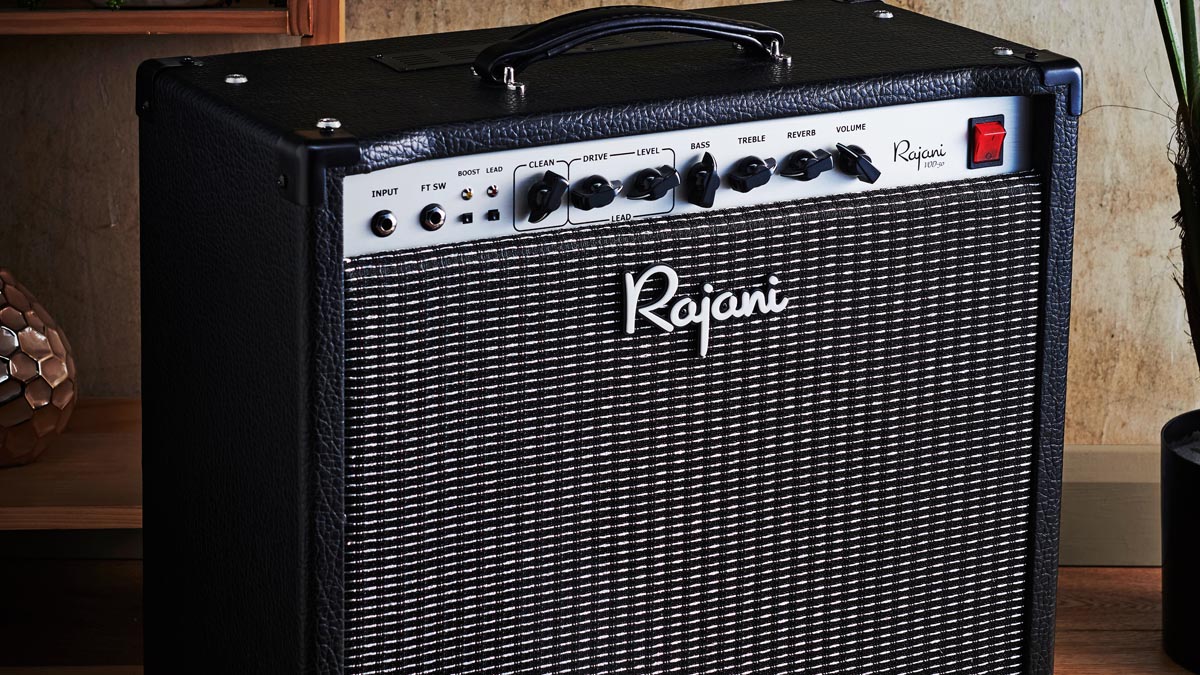Guitar World Verdict
Fresh, contemporary, and yet reassuringly familiar – and reassuringly lightweight! – the Rajani VOD-50 is a very convincing combo with heaps of clean headroom and a reverb to die for.
Pros
- +
Quality tones.
- +
Excellent reverb.
- +
Very portable.
- +
The build quality is top-notch.
- +
Low-noise performance.
Cons
- -
Slightly limited feature set compared with the competition.
- -
Expensive.
You can trust Guitar World
There are more guitar amps and amplification options today than ever before, yet even in a market that appears near saturation it seems there’s always an opportunity for new brands and products – at least for those who are brave enough.
Enter Rajani Audio Electronics, based in North London and the brainchild of founder Ravi Rajani, a pro guitarist and electronics engineer with experience that includes working for a major tech company in Silicon Valley.
After years of doing repairs and modifications, Ravi has merged his passion for music and electronics to produce an amplifier that meets his own exacting requirements: the VOD-50.
Featuring a high-quality optical compressor on its input, the power stage is supposed to stay clean and clear all the way up to 11
It’s a smartly turned out 112 combo, with neatly applied black vinyl and a black and silver sparkle grille cloth. Inside is a hybrid circuit with two preamp valves – a 12AX7 and a 12AU7 – coupled to a clever Class AB solid-state output stage that’s been specially developed to flatter the electric guitar’s dynamics.
Featuring a high-quality optical compressor on its input, the power stage is supposed to stay clean and clear all the way up to 11, reproducing the VOD-50’s preamp tones with perfect clarity.
Under the vinyl of our sample, there’s a solid pine cabinet with dovetailed corners for light weight, resonance and durability. The loudspeaker onboard is a Jensen Tornado Special Edition, which has a neodymium magnet to help keep the kilos away. Add in a smart aluminium chassis and the VOD-50 is very portable indeed; at just over 13 kilos (30lb), it’s a comfortable one-handed lift for most people.
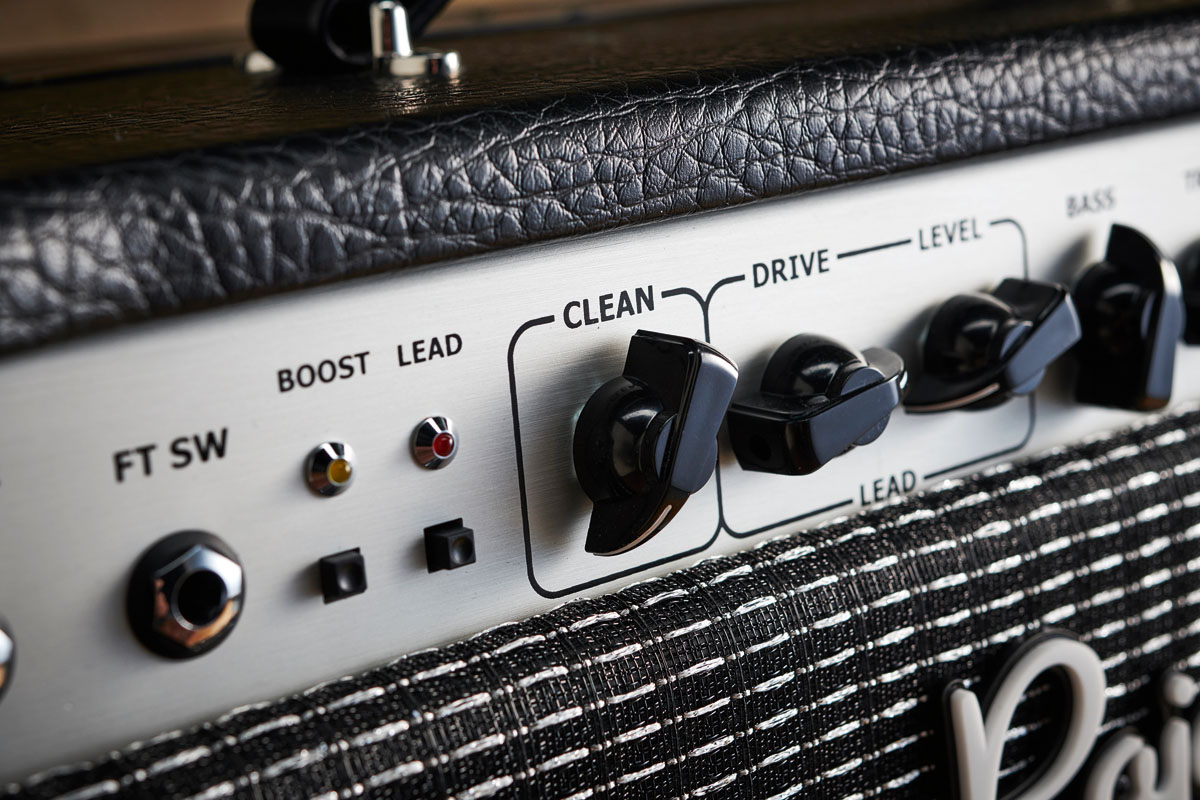
The VOD-50’s lead and boost functions are controlled by these two front-panel switches, and there’s also a remote two-button footswitch supplied.
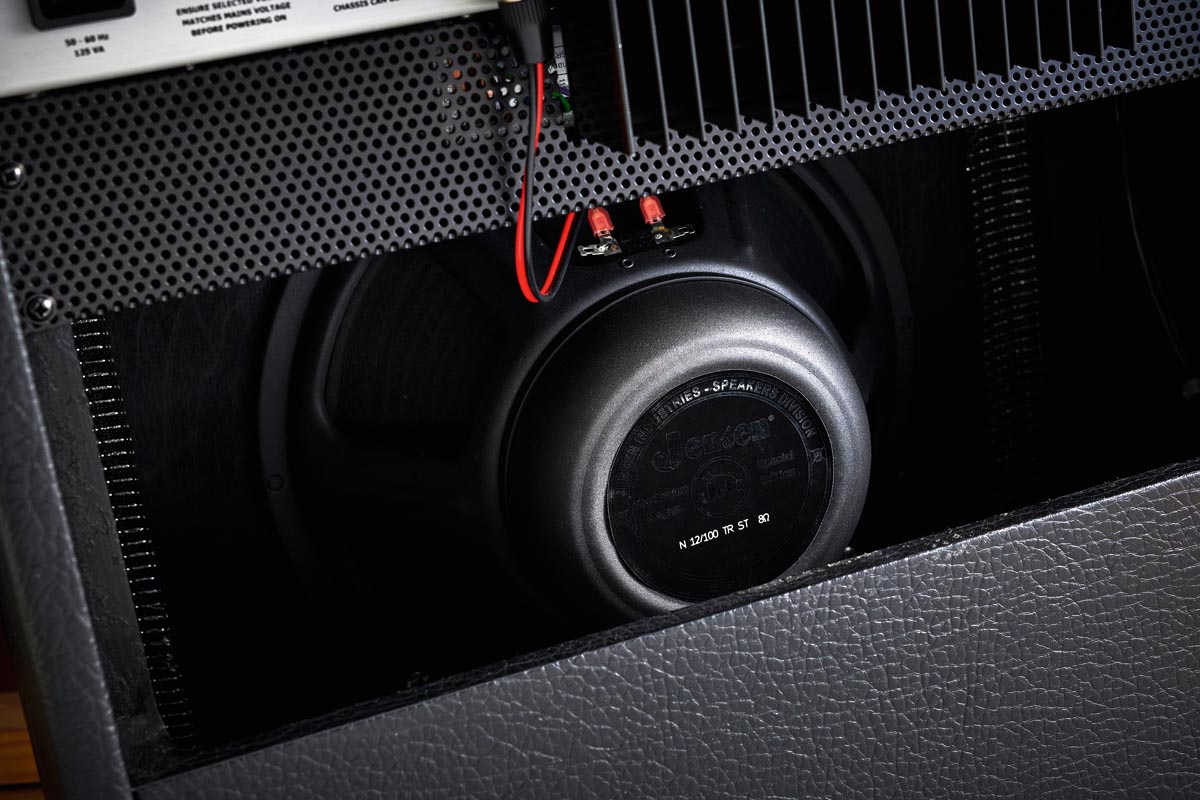
Rajani’s choice of loudspeaker for the VOD-50 is the excellent Jensen Tornado, which features a weight-saving neodymium magnet.
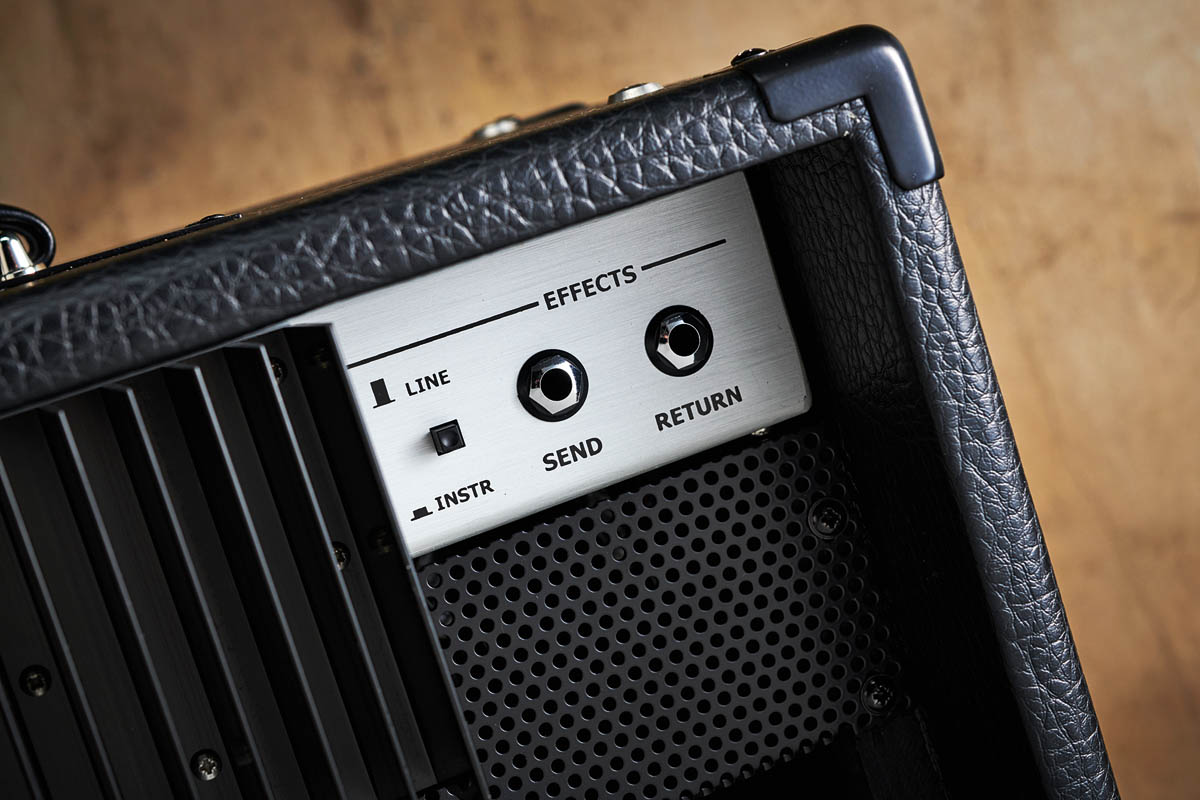
The VOD-50’s series effects loop has a switchable level feature to accommodate regular stompboxes and semi-pro rack effects. Elsewhere, underneath the vinyl there’s a solid pine cabinet, with dovetailed corners, for light weight and resonance. There are different cab/speaker vinyl options to suit all tastes.
Inside the chassis, the electronics are PCB-based, with most components held on three boards: one for the front-panel controls, one for the effects loop and reverb, and a large main board for everything else, all hooked up with locking ribbon connectors.
All the latest guitar news, interviews, lessons, reviews, deals and more, direct to your inbox!
There’s a mix of miniature and surface mount components, with metal film resistors everywhere to reduce hiss levels. Meanwhile, the mains transformer is a large toroidal type.
Toroidal transformers have very tight hum fields, which significantly reduce noise pick-up, but they generate much higher current at switch-on, so the power supply circuit needs to accommodate that. While they’re common in hi-fi equipment, there’s only one other guitar amp manufacturer we know of using toroidal transformers as standard.
This exciting new amplifier is different yet sounds comfortingly familiar, with a contemporary vibe that works well for most genres
The VOD-50 is a single-channel design with a clean level control and a footswitchable lead section that has separate controls for drive and level.
Both clean and lead sounds share the same EQ, which is an active modified Baxandall design with controls for bass and treble. Both tone knobs have around 13dB of cut and boost, and the shelf frequencies have been carefully chosen to sound natural for the guitar.
Other features include a footswitchable boost that works in clean and lead modes, spring reverb and a simple series effects loop, which can be switched from instrument to line level operation.
Overall, the Rajani looks well made inside and out, with robust high-quality electronics and clean layout. It’s certainly capable of handling non-stop gigging at the pro level.
Feel & Sounds
The VOD-50’s simple control panel requires a little explanation, because it doesn’t follow the conventional gain, master volume and passive EQ arrangement most guitar amplifiers use.
There are two footswitchable modes called Clean and Lead. The Clean control is actually a variable wide midrange boost that progressively adds more grit and bite to the sound. When turned down to zero with the master volume high, there’s plenty of headroom for funk and jazz. Turning up adds a Tweed-influenced grunt that’s great for blues and country.
The Lead drive does a similar thing for the Lead mode, with a respectable Tweed crunch that turns into a smooth, singing sustain at higher levels with a hint of Dumble, although the preamp is completely different in design and operation. The footswitchable boost function operates in both modes, acting as a mid boost for the Clean mode and a treble boost for the Lead mode.
The reverb is excellent, too, with a warm, smooth decay and none of the crashiness that often affects spring circuits
The bass and treble tone controls operate an active Baxandall-type EQ, with the neutral position at 12 o’clock, cutting frequencies when turned anti-clockwise and boosting them when turned clockwise. The easiest way to understand how it works is to imagine three shelves labelled bass, mid and treble.
Although there’s no mid control, lowering bass and treble creates a hump for midrange emphasis, while raising bass and treble up creates a mid-scoop effect. Unlike passive EQs, the VOD-50’s tone controls aren’t interactive, making the results smooth and predictable, with none of the nasal peaks that sometimes occur in passive EQs.
The VOD-50 flatters our ’72 Les Paul Custom’s humbuckers and the Seymour Duncan Alnico Pro single coils of our Strat-alike, and its excellent low-noise performance makes it a great tool for the studio as well as the stage, where there’s volume to spare for live gigs. The reverb is excellent, too, with a warm, smooth decay and none of the crashiness that often affects spring circuits.
Verdict
It’s far from easy to design, test and build a guitar amplifier if you want to bring it to the market as a commercial product.
While there are many enthusiasts tinkering away in their sheds with ‘roll your own’ hand-wired projects based on classic designs, it takes a lot of skill, courage and money to make the next step and design something new, invest in printed circuit boards, custom chassis and all the other boxes that need to be ticked before you can see your product on a shop floor.
Ravi Rajani has taken this path to produce an exciting new amplifier that’s different yet sounds comfortingly familiar, with a fresh, contemporary vibe that works well for most genres other than full-on metal and hard rock.
Aimed at professionals and well-heeled amateurs, it’s far from an impulse purchase. However, the superior build quality makes it good value in our book. If you’re looking for a cool alternative to mass-produced, Rajani is definitely one to check out.
Specifications
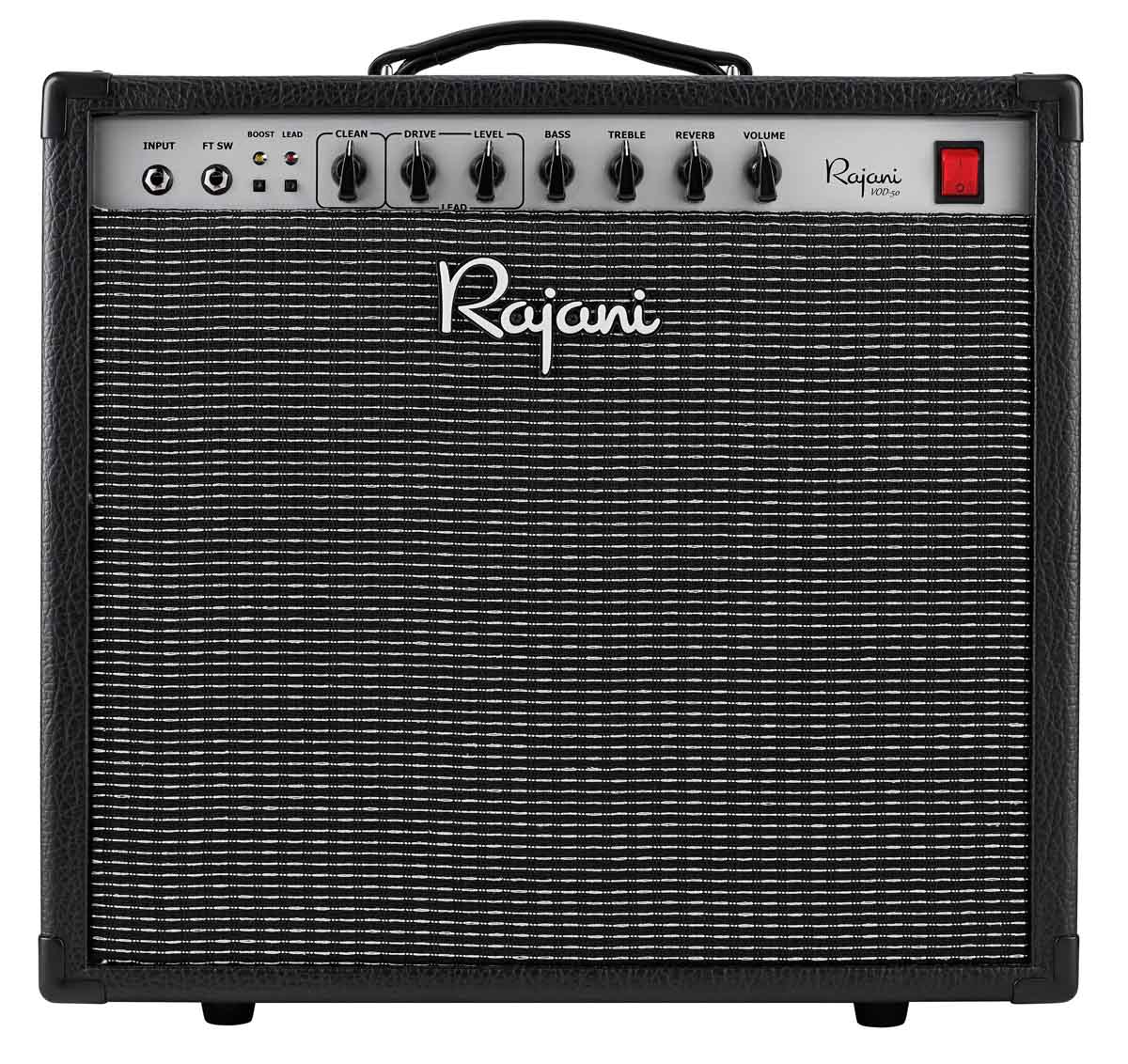
- PRICE: £1,495
- ORIGIN: UK
- TYPE: Valve preamp, solid-state power amp
- OUTPUT: 50W RMS
- VALVES: 1x 12AX7, 1x 12AU7
- DIMENSIONS: 490 (h) x 525 (w) x 255mm (d)
- WEIGHT (kg/lb): 13.5/30
- CABINET: Pine
- LOUDSPEAKERS: 1 x12” Jensen Tornado Special Edition
- CHANNELS: 1
- CONTROLS: Clean level, lead drive, lead level, bass, treble, reverb level, master volume
- FOOTSWITCH: 2-button switch (supplied) toggles boost and clean/lead sounds
- ADDITIONAL FEATURES: Series effects loop with switchable levels, spring reverb
- OPTIONS: The amp can be ordered with various speaker configurations and vinyl colours; contact manufacturer for more details
- RANGE OPTIONS: There’s a head version, too, for £1,395
- CONTACT: Rajani Amps
Nick Guppy was Guitarist magazine's amp guru for over 20 years. He built his first valve amplifier at the age of 12 and bought, sold and restored many more, with a particular interest in Vox, Selmer, Orange and tweed-era Fenders, alongside Riveras and Mark Series Boogies. When wielding a guitar instead of soldering iron, he enjoyed a diverse musical career playing all over the UK, including occasional stints with theatre groups, orchestras and big bands as well as power trios and tributes. He passed away suddenly in April 2024, leaving a legacy of amplifier wisdom behind him.
